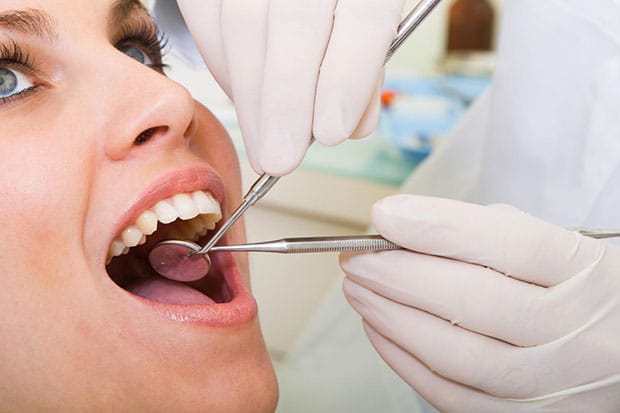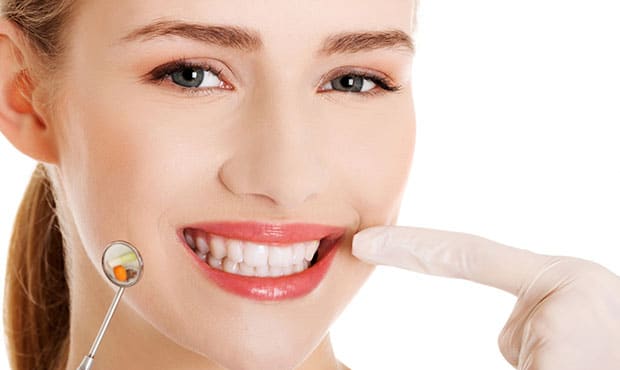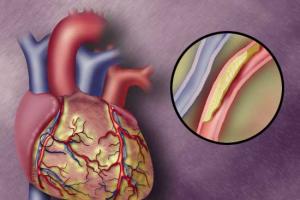Hello dear readers! Today we will discuss dental treatment during pregnancy. This topic is full of myths and rumors, so it makes sense to confirm or refute them. Every woman is afraid of dental problems, which most often appear when carrying a child. Let's talk about when you can treat your teeth during pregnancy and whether you can take pictures of your teeth.
There is a myth that during pregnancy a woman can lose her teeth, or at least one of them. This myth is not justified by dentists. Doctors agree with the fact that during pregnancy the condition of the teeth becomes worse, but this does not guarantee that all women who have given birth will lose their teeth. Although in ancient times, in the absence of dentistry, this happened.
The deterioration of dental health during childbearing occurs for the following reasons:
- Change in the hormonal background of the body;
- Changes in the composition of saliva;
- Increased soft plaque on the teeth, which leads to caries;
- Toxicosis and frequent vomiting (acid, which at the same time enters the oral cavity, destroys tooth enamel);
- Decreased calcium in the body.
Ideally, if a woman is planning a pregnancy, her teeth should be treated before her onset. If the teeth are healthy, then during the period of bearing a child, you will only need to maintain their hygiene and drink the necessary vitamin complexes (which also contain calcium). If the teeth are initially not in perfect condition, pregnancy will only exacerbate problems with them. Here, in addition to systematic hygiene procedures, treatment will also be needed, since the teeth can ache in earnest.
During gestation, a woman should pay attention to her teeth, namely:
- Be sure to thoroughly brush your teeth 2 times a day;
- Constantly use dental floss;
- Do a hygienic cleaning of the teeth at the dentist to remove plaque that cannot be removed on its own;
- Rinse your teeth with rinses recommended by your doctor;
- Pay attention to foods rich in calcium (do not drink tea or coffee with them so that calcium is better absorbed);
- If there is acute pain in the tooth, consult a dentist, because the lack of treatment will lead to complications.
Many people wonder if it is dangerous to have dental treatment during pregnancy? Fortunately, modern medicine has reached a level where it is no longer necessary to be so afraid of this, as it was 20 years ago.

The main thing is to follow the advice of doctors and avoid medical treatment at the dentist at the beginning of pregnancy.
2. Dental treatment in early pregnancy
How to treat teeth so that the impact on the child is minimal? In the early stages of pregnancy, any manipulations with the use of medications are prohibited, because in the first trimester the placental barrier is still absent, and any medications will penetrate the fetus through the blood. If pregnancy was a surprise for you, and you did not have time to cure your teeth before conception, it is better to be patient with treatment at least until the second trimester.

Modern anesthetics are not dangerous for pregnant women, but still it is better to exclude the slightest risk in the most crucial period of the formation of all organs and systems of the fetus. With an injection of an anesthetic, albeit in a meager dose, an unwanted medicine will get in. Until what week of pregnancy does this dangerous time last? After 12 weeks, the risk of impaired fetal development is no longer so great.
An exceptional case in which a pregnant woman in the early stages can go to the dentist "by ambulance" is severe tooth pain and exacerbations of chronic pulpitis or gingivitis.
3. Dental treatment in late pregnancy
The main question is at what period of pregnancy the harm from dental treatment is minimal? Doctors answer that the second trimester is the most suitable period for this. At this time, the placenta already protects the fetus from many harmful substances that enter the bloodstream, and the fetus is already formed. The need to treat a diseased tooth is transferred to this time.
The dentist must be aware that the patient is pregnant so as not to use dangerous drugs. It is better to give preference to a private clinic with modern facilities, and not to state clinics, where the equipment is outdated and the medicines are not safe. The pain reliever should be based on articaine, which does not affect the development of the fetus or the course of pregnancy at a later date.

In the third trimester of pregnancy, it is problematic to treat teeth precisely because of the large belly.
It is undesirable for a pregnant woman to lie on her back at this time (namely, the patient at the dentist is in this position), since the fetus pinches the artery, which causes an increased heartbeat of the mother and reduces the supply of oxygen to the child. If there is already a need for dental treatment at this time, you need to lie in a chair with an offset to the left side to reduce fetal pressure.
4. X-ray of teeth during pregnancy
If anesthesia is already clear, then what about x-rays? X-ray, of course, is very dangerous for a pregnant woman, since radioactive radiation can lead to cell mutation and involuntary abortion in the early stages. But harmfulness is measured in the amount of radiation and its location. Is it possible to take an x-ray of a pregnant woman's tooth?

If dental treatment is urgent and an x-ray is required, you need to:
- Use a modern device - a visiograph, which takes a digital picture and the radiation dose is very small. In addition, the device takes a picture of the directly desired tooth, without even touching its surroundings.
- Take pictures after the first trimester;
- If it is possible to take an X-ray of the tooth exclusively on old equipment that takes a picture on film, cover the entire body of the pregnant woman with a reliable reflector.
Dear women, if you have serious problems with your teeth during pregnancy, you do not need to endure pain, fearing a visit to the dentist and harmful consequences for the child. It makes sense to suffer only in the first trimester.
5. Why sick teeth during pregnancy should not be left without treatment
Visiting a dentist while pregnant is still not safe, but having a bad tooth at this time is dangerous. If the focus of infection and pain in the mouth is not treated, then this threatens with such consequences during pregnancy:
- A sick tooth forms a focus of infection, which spreads with blood to the baby and harms him;
- The pain that a pregnant woman suffers provokes a surge of adrenaline and changes in the general hormonal background, and this can provoke an increased tone of the uterus.
The constant presence of microbes can lead to periodontitis, which is dangerous for both the pregnant woman and the fetus, and is also not treated further.
You can watch a video about dental treatment during pregnancy here:
Dear pregnant women, take care of your teeth before pregnancy and during it, and your teeth will be in perfect order. Don't forget to subscribe to our updates. See you later!








